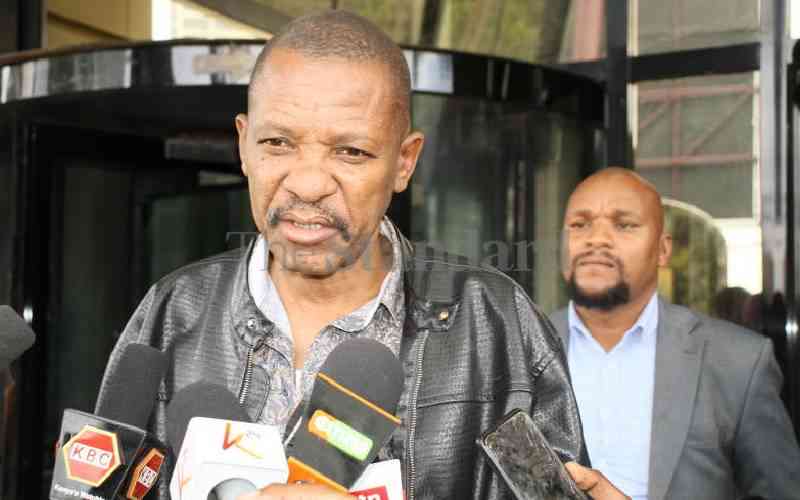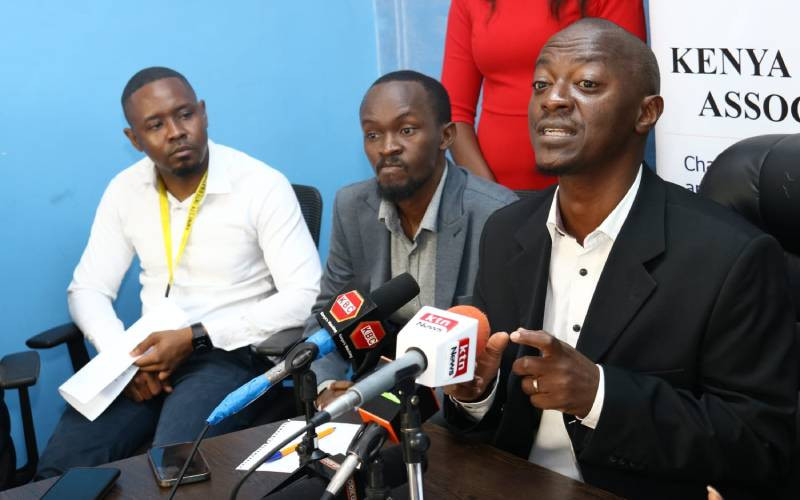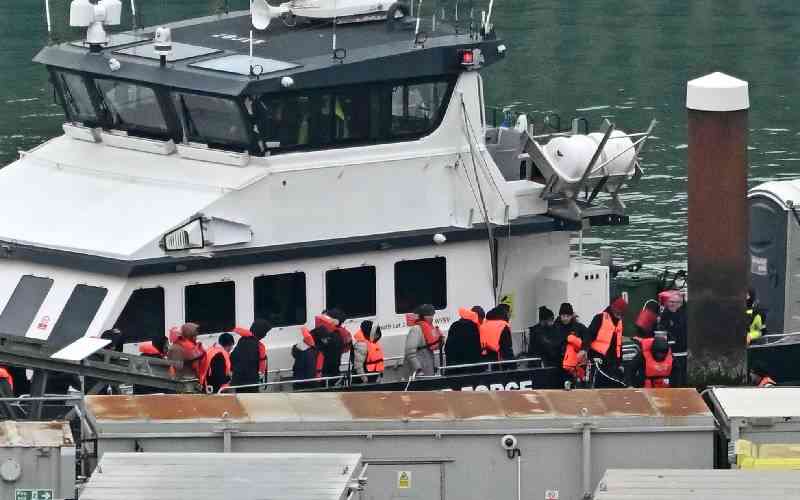Last week, police in Nairobi broke up a demonstration by 900 workers facing retrenchment, and arrested five people. Four of those arrested were released unconditionally, having been held overnight at the Central Police Station on charges of robbery with violence.
Witnesses say the plain-clothed police officers used excessive force while arresting the four. One of them, a well-known journalist working for a civil society organisation, was assaulted and police smashed a number of cell-phones, including his, as a way of discouraging a recording of the arrests.
Only the previous week, when members of the Coast human rights community came out in a demonstration over activities linked to the Standard Gauge Railway, police in Mombasa arrested some of them, in what is now a settled pattern of crackdown against protests.
As part of this trend, when in June, a number of Kenyan and Sudanese activists under the coalition Africans4Sudan, staged a procession in Nairobi in solidarity with the Sudan revolution that was then underway, police dispersed the procession with teargas and arrested two people, a senior member of staff of the Kenya Human Rights Commission and a member of the public. The two are currently on trial for participating in an unlawful assembly and rioting after a proclamation to disperse.
The officer commanding the Central Police Station, who led police in dispersing the demonstration, had claimed that he had orders from above disallowing the procession. The organisers of the march had already shown him a copy of the written notification that had been submitted to the National Police Service (NPS) informing them that civil society organizations and human rights defenders would convene the procession.
Because it has become so dangerous to be in the streets, even after notifying the police as required by law, civil society activists only come out after carefully complying with the law. Attempts to notify police about a proposed protest usually elicit different reactions. Police usually refuse to acknowledge notification of a protest that they consider political, or introduce additional conditions that have no legal basis.
Although notification should be handled at police-station level, police often dodge responsibility to handle such notifications, referring one to their less accessible superiors at headquarters. As these recent cases have shown, even when they have been notified, police apparently reserve the right to turn up with teargas, to cancel an activity of which they had accepted notification.
When pushed to court, trials for unlawful assembly hardly ever reach a conclusion. Because the only witnesses are police officers, it is typically difficult to secure their attendance in court, leading to delays. For example, the case against Boniface Mwangi over the MPigs incident of May 2013 is still pending in court, six years later. The trial of a colleague arrested on assembly-related charges in 2010 is still pending in court.
While those charged run little risk of conviction, because police are unable to explain how a protest that was notified would be illegal, these trials still present great difficulties for the accused persons. First, attending court over such long periods is draining. Many of those charged are poor and cannot meet bail conditions.
Because most would have come to the streets in righteous anger over a grievance, a criminal case only compounds the original grievance.
When, in February, police broke up our meeting with survivors of the Solai dam tragedy, they also charged eight of them in court in Nakuru. Since the raging waters had swept away everything they owned — their loved ones, their homes, money, personal documents like title deeds — the accused were unable to meet the bail terms that the court set. Already victimised by the tragedy where they had lost family and property, these people were now being re-victimised through a judicial process that also punishes penury. In their understanding, the only crime they had committed was that they had dared to agitate for redress.
Because the policing of assemblies is now so arbitrary, police have no intention of taking those they arrest to court. Where they do, they know that the trial is unlikely to succeed. In the result, police action is now no more than a process of capture-and-release. For example, police still unconditionally released the four people arrested last week, even after sensationally charging them with the crime of robbery with violence, a capital offence.
As the trends show, police have now abolished the constitutional right to protest and, in its place, have established a situation where their preferences supplant the law. There is a name for this. It is called a police state.
Although high-handed and illegal, police management of public assembly is not illogical. It is calculated to discourage those who wish to speak truth to power, to increase the cost of questioning authority, and to create a subservient citizenry.
- The writer is the executive director at KHRC. [email protected]
Stay informed. Subscribe to our newsletter
 The Standard Group Plc is a
multi-media organization with investments in media platforms spanning newspaper
print operations, television, radio broadcasting, digital and online services. The
Standard Group is recognized as a leading multi-media house in Kenya with a key
influence in matters of national and international interest.
The Standard Group Plc is a
multi-media organization with investments in media platforms spanning newspaper
print operations, television, radio broadcasting, digital and online services. The
Standard Group is recognized as a leading multi-media house in Kenya with a key
influence in matters of national and international interest.
 The Standard Group Plc is a
multi-media organization with investments in media platforms spanning newspaper
print operations, television, radio broadcasting, digital and online services. The
Standard Group is recognized as a leading multi-media house in Kenya with a key
influence in matters of national and international interest.
The Standard Group Plc is a
multi-media organization with investments in media platforms spanning newspaper
print operations, television, radio broadcasting, digital and online services. The
Standard Group is recognized as a leading multi-media house in Kenya with a key
influence in matters of national and international interest.









